Greetings! ScoreKeeper here with a welcoming ear toward aught-seven and a departing hand for the many scores wrought in aught-six.
Last year was not a particular banner year for film music. It certainly can not compare to 1960, 1985 or even 1993. However, considering it was an even-numbered year, 2006 actually harvested a handful of scores that will forever nestle among the immortal classics of years past.
I was hoping to complete this article closer to the actual turn of the new year, but there were a crop of scores that remained unfamiliar to me which I wanted to remedy before concluding my list. I didn’t get to see or hear every new film of 2006, however, my impassioned efforts were not in vain. I soaked up new films like a sponge and experienced more than any previous year of my movie-loving life.
I’m a list junkie and whether compiling them on my own or reading those authored by others, it’s always a great catalyst for some hearty discussions on film music.
Here now is a reminiscing listen at what I consider to be the Top Ten Best Film Scores of 2006.
T-minus ten and counting…
10. THE ANT BULLY (2006) by John Debney - Selecting this score at number ten actually surprised me. When I saw the film earlier in the year, I was instantly attracted to the music but I wasn’t leaving the theater thinking to myself that this was one of the best scores I had heard that year (it certainly wasn’t one of the best movies). It wasn’t until I acquired the album weeks later that the infectious lyricism of the main theme began burrowing itself into my conscious brain.
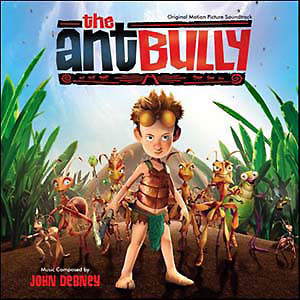
9. APOCALYPTO (2006) by James Horner – I first saw this film back in September when it was a rough cut with no special effects, production sound, and a temporary score threaded from various cinematic sources. Acknowledging that it had a long way to go, I still thought it was one of the best movies I had seen all year.
Closer to the release of the film, I received a copy of the score on CD. Having seen the rough cut, I was eager to hear what direction the score took. After several listens I can’t say I was enthusiastic. The music seemed disjointed as if quilted together into a patchwork of disparagingly random sounds. It seemed to lack focus and direction. I didn’t know quite what to make of it.
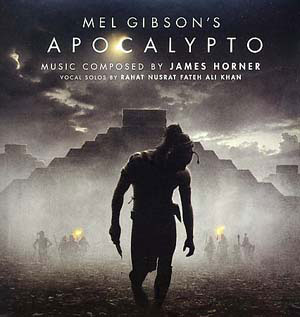
8. THE PROMISE (2005) by Klaus Badelt – Having not been particularly partial to any other Badelt authored scores prior to the release of this film, I am once again surprised to find its inclusion on my list. Whether it’s a sign of a masterful director, a proclivity toward the material, or some other divine inspiration, Badelt has elevated dramatic scoring par excellence with this single extravagant effort. He has exposed a facet of his compositional prowess that I would welcome see nurtured more often.
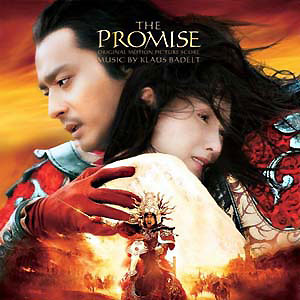
7. LITTLE CHILDREN (2006) by Thomas Newman – I’ve always considered myself to have a founding affinity for the “less-is-more” approach in film music. Look up the phrase in the dictionary and you’ll hear examples of Thomas Newman’s music.
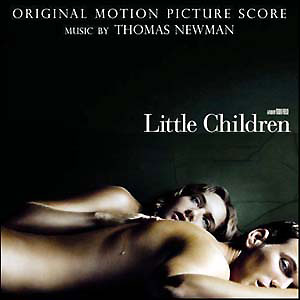
6. ABOMINABLE (2006) by Lalo Schifrin – This score is one of the best horror scores I’ve heard in a decade, one of the best Lalo Schifrin scores I’ve heard in two decades, and one of the seminal masterpieces of 2006.
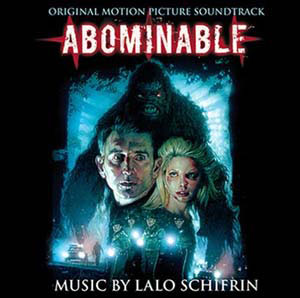
5. MONSTER HOUSE (2006) by Douglas Pipes – When I first heard this score was composed by a relative tenderfoot with no substantial feature film scoring experience my eyes rolled in apathy. It used to be that when a new name in film composition entered my awareness I would get childishly giddy at the prospect of discovering a new gem or at least a musical diamond in the rough. After several years of general disappointment those expectations have waned.
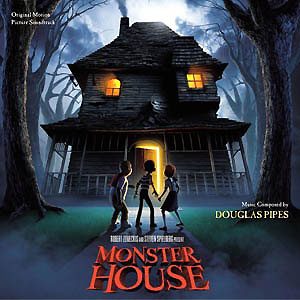
4. PERFUME: THE STORY OF A MURDERER (2006) by Tom Tykwer, Johnny Klimek & Reinhold Heil – When a director affiliates him or herself with composing the score for their own film, the result typically bears dysfunctional fruit ripe with amateurism. Not so in this case. Tom Tykwer, who also directed the film, spearheads a trinity of musical talent rounded out by Johnny Klimek & Reinhold Heil. This is not the first time that Tykwer, Klimek & Heil have assimilated their creative forces; however, nothing in their former collaborations could have foreshadowed the unsurpassed grandeur and magnificence of their latest effort.
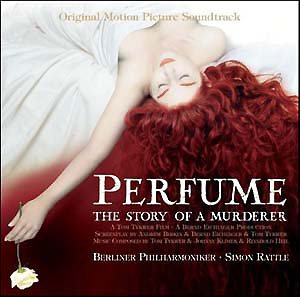
3. CHARLOTTE’S WEB(2006) by Danny Elfman – Throughout the course of his illustrious career, Danny Elfman has exemplified his skill as a storyteller through music that encompasses practically every genre known to cinema. Although he is adept at scoring just about any type of film imaginable, he has particular aptitude toward films that include elements of fantasy.
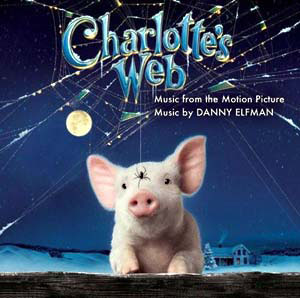
2. THE FOUNTAIN (2006) by Clint Mansell – I think of Darren Aronofsky and Clint Mansell as one artist. I can no easily separate Aronofsky’s images from Mansell’s music as I could the color blue from a Picasso painting. Such collaborative relationships between director and composer have occurred in the past albeit they are still a rarity.
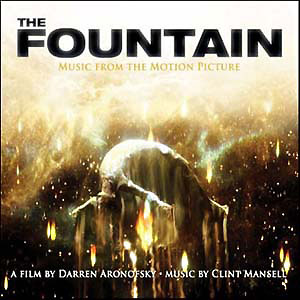
1. PAN’S LABYRINTH (2006) by Javier Navarette – Of all the scores I was exposed to in 2006, this was undoubtedly my very favorite. I first became aware of this the moment the end credits scrolled at the conclusion of my first viewing. I even returned to the theater and viewed the film a second time in preparation for declaring the score my favorite of the year. My love for this film and its beloved music grows deeper with each passing second.
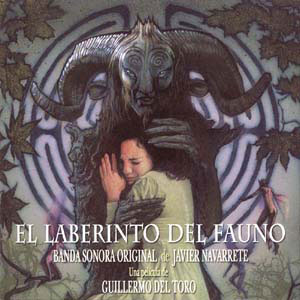
ScoreKeeper!!!
Other Articles By ScoreKeeper:
Interviews
Klaus Badelt (05.25.06)
Bear McCreary (06.07.06)
Lalo Schifrin (06.18.06)
John Ottman (06.27.06)
Joseph LoDuca (08.21.06)
Alex Wurman (08.23.06)
Jeff Beal (09.08.06)
Chris Lennertz (09.29.06)
John Debney (10.15.06)
Howard Shore (11.15.06)
Clint Mansell (11.27.06)
David Julyan (12.19.06)
John Powell (12.30.06)
Craig Armstrong (01.02.07)
Reviews
THE DAVINCI CODE (2006) by Hans Zimmer (05.06.06)
THE PROMISE (2005) by Klaus Badelt (05.25.06)
NACHO LIBRE (2006) by Danny Elfman (06.10.06)
MONSTER HOUSE (2006) by Douglas Pipes (07.12.06)
PETITES PEUR PARTAGÉS by Mark Snow (08.29.06)
ScoreKeeper Reviews The Super Fantabulous ELMER BERNSTEIN'S FILM MUSIC COLLECTION!!
(10.15.06)
ScoreKeeper Reviews Danny Elfman's CHARLOTTE'S WEB Score!! (11.30.06)
Miscellaneous
Who is Composing Which Scores This Summer (and Beyond)?? (05.09.06)
Elfman Removes his Credit from NACHO LIBRE? (06.12.06)
ScoreKeeper on John Williams’ New NBC Sunday Night Football Theme (09.01.06)
ScoreKeeper on Danny Elfman’s CHARLOTTE’S WEB Interview (09.05.06)
ScoreKeeper Considers the Film Music of Fantastic Fest (10.03.06)
ScoreKeeper’s Smolderin’ Potpourri of Cool Film Music News and Bits and Things!! (10.09.06)
ScoreKeeper Re: Marilyn Manson's Cover of NIGHTMARE BEFORE CHRISTMAS Tunes!! (10.26.06)
Basil Poledouris Is Gone (11.08.06)
Shirley Walker Is Gone (11.30.06)










ScoreKeeper!!!
Reviews THE DAVINCI CODE (2006) by Hans Zimmer (05.06.06) THE PROMISE (2005) by Klaus Badelt (05.25.06) NACHO LIBRE (2006) by Danny Elfman (06.10.06) MONSTER HOUSE (2006) by Douglas Pipes (07.12.06) PETITES PEUR PARTAGÉS by Mark Snow (08.29.06) ScoreKeeper Reviews The Super Fantabulous ELMER BERNSTEIN'S FILM MUSIC COLLECTION!! (10.15.06) ScoreKeeper Reviews Danny Elfman's CHARLOTTE'S WEB Score!! (11.30.06)
Miscellaneous Who is Composing Which Scores This Summer (and Beyond)?? (05.09.06) Elfman Removes his Credit from NACHO LIBRE? (06.12.06) ScoreKeeper on John Williams’ New NBC Sunday Night Football Theme (09.01.06) ScoreKeeper on Danny Elfman’s CHARLOTTE’S WEB Interview (09.05.06) ScoreKeeper Considers the Film Music of Fantastic Fest (10.03.06) ScoreKeeper’s Smolderin’ Potpourri of Cool Film Music News and Bits and Things!! (10.09.06) ScoreKeeper Re: Marilyn Manson's Cover of NIGHTMARE BEFORE CHRISTMAS Tunes!! (10.26.06) Basil Poledouris Is Gone (11.08.06) Shirley Walker Is Gone (11.30.06)
